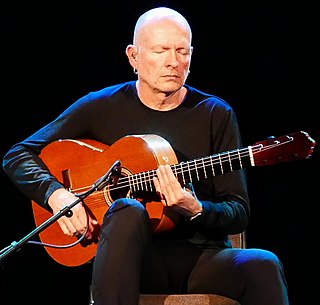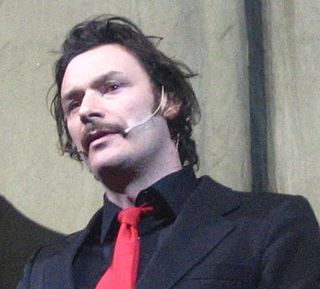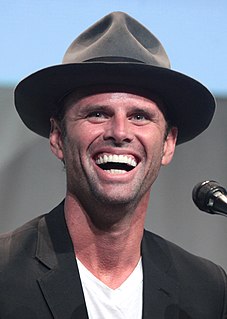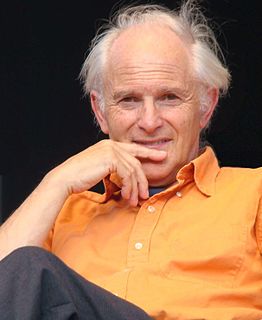A Quote by Ottmar Liebert
You grow the fastest by getting... adopting ideas and technologies from other cultures. And that has been proven in history, time and time again. Whether you go back to the ancient Persians, or the Romans, or the Ottomans. It's how a culture grows, by incorporating other ideas and going, wow, how did they do this? Oh, I bet you this works with this, and then you can improve it again. So I think any culture that sort of says, no no no, it's just us, nobody gets in anymore, it's the beginning of atrophy, and the rest of the world will just pass you.
Quote Topics
Adopting
Again
Ancient
Any
Anymore
Atrophy
Back
Been
Beginning
Bet
Culture
Cultures
Did
Fastest
Gets
Getting
Go
Going
Grow
Grows
History
How
Ideas
Improve
Incorporating
Just
Nobody
Oh
Other
Other Cultures
Ottomans
Pass
Proven
Rest
Romans
Says
Sort
Technologies
Then
Think
Time
Time And Time
Us
Whether
Will
Works
World
Wow
Related Quotes
The great news is that that sort of group of people and that sort of sensibility is beginning to become more active again. And I think partly it just has to do with the time. It has to do with the culture of resistance. The necessity is for us to pull together and to speak up and to make work and be visible.
Much of the rest of the world has already learned some English. They pretty much understand the American way of doing things, because our culture has been ubiquitous and has been the 500-pound gorilla in the global economy. But the world is far more interrelated than ever before, and no one culture can thrive without the knowledge of how to function in other cultures.
In many other cultures, and certainly in the Eastern world, there's great value put on being, contemplating, and even withdrawing from the world at certain times or for certain periods of time. But we don't really have that in our culture, so it's difficult for many Westerners to learn how to sit down or lie down and just be quiet without going to sleep. We're just not trained to do it.
It's about something that I'm extremely passionate about: exploring other cultures, how Americans are perceived by other cultures and how we perceive other cultures through our worldview. I travel whenever I get an opportunity to do so, and I think this country is ready for a show on television that is bilingual and really puts front and center another culture, both as the protagonist and the antagonist.
I think it's very important for everyone in America to realize right now the state of our country, not just on this issue but on a lot of issues, that it is time to get active again. People have just sat back and just sort of said, oh, let somebody else do it for a long time, and we're seeing what's happening to the country, even freedom of speech. It's not going well. So I think this is a real opportunity for people to see, yes, if you do get out and you do get active, there are other people there. You just have to seek them out.
The reason you go to university is to be taught, is to learn how to think more clearly, to call into question the ideas that you came with and think about whether or not they are the ideas you will always want to hold. A university education at its best is a time of confusion and questioning, a time to learn how to think clearly about the values and principles that guide one's life. Of course, it's also a time to acquire the skills needed for jobs in the "real world," but the part about becoming an adult with ideals and integrity is also important.
Poetry transcends the nation-state. Poetry transcends government. It brings the traditional concept of power to its knees. I have always believed poetry to be an eternal conversation in which the ancient poets remain contemporary, a conversation inviting us into other languages and cultures even as poetry transcends language and culture, returning us again and again to primal rhythms and sounds.
There's this Indian fellow who worked out a cycle like the idea of stone-age, bronze-age, only he did it on an Indian one. The cycle goes from nothing until now and 20th century and then on and right around the cycle until the people are really grooving and then just sinks back into ignorance until it gets back into the beginning again. So the 20th century is a fraction of that cycle, and how many of those cycles has it done yet? It's done as many as you think and all these times it's been through exactly the same things, and it'll be this again.
You can be an idiot and survive because you just go to McDonalds for your food, and you go to work and do some sort of inane job, which is nobody taking any responsibility - it's always up the line - and then you watch the Super Bowl, and that's it. But in the old days, you really had to know how your world works. You don't need that anymore.
There are things that I am passionate about, whether it's the season or just kind sort of what is necessary for culture. I like the idea that I can shape the culture in any shape or form that I can in whatever topic. But a lot of times, for me, it is about representing "the other," whoever "the other" is.
It's the culture, not the blood. If you can go anywhere in the world and adopt these babies and put them into households that were already assimilated in America, those babies will grow up as American as any other baby with as much patriotism and love of country as any other baby. It's not about race. It's never been about race. In fact the struggles across this planet, we describe them as race, they're not race. They're culture based. It's a clash of culture, not the race. Sometimes that race is used as an identifier.



































